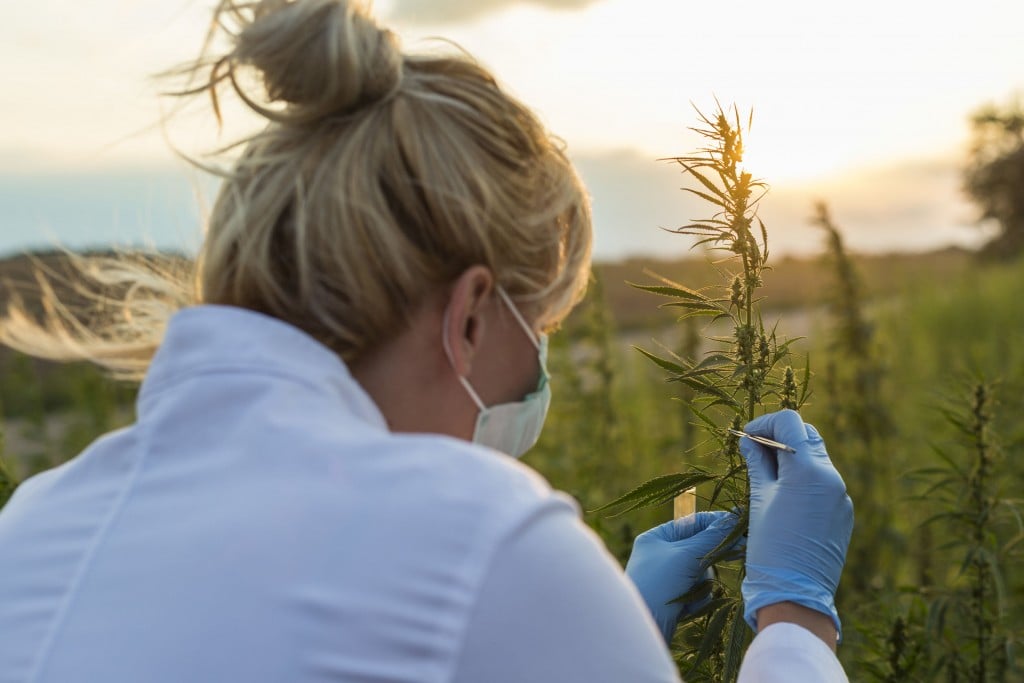Modified Soil Microbes Could Trigger A GMO Doomsday
Before your legislative representatives let Bayer spread genetically engineered soil microbes all over your state, make sure they read the risks report its partner Ginkgo Bioworks filed.
Contaminating soil with rogue GMO microbes could trigger a doomsday for agriculture that would jeopardize not only our ability to grow food, but would imperil life as we know it on this planet.
Before your legislative representatives let Bayer spread genetically engineered soil microbes (supposedly for use as fertilizers and pesticides) all over your state, make sure they read the risks report its partner Ginkgo Bioworks filed with the Securities and Exchange Commission.
Starting with, “The release of genetically modified organisms or materials, whether inadvertent or purposeful, into uncontrolled environments could have unintended consequences,” it’s like a sci-fi writer’s brainstorm of plots for a disaster movie!
It covers accidents, terrorism, and biological weapons, and lets investors know that, even in the normal course of business, they could be on the hook for the deaths of Ginkgo’s employees, its customers and the general public.
Ginkgo Bioworks’ main partner is Bayer (Monsanto).
According to Friends of the Earth:
“Bayer has amassed a collection of at least 125,000 wild microbial strains and in 2019 created an umbrella branch for related products called Biologicals by Bayer. The company has rapidly expanded their activities in this area via acquisitions.
“Between 2012 and 2014, Bayer acquired three biologicals companies and in 2022 established a strategic partnership with Ginkgo Bioworks, a startup company which has received $15 billion in investment to develop a platform to automate the genetic engineering of thousands of microbes at once. Bayer also acquires and markets individual microbial products from other companies. The most prominent microbial products released by the company to date are bacteria-based fungicides as well as some plant growth promoting products.”
Bayer has made a pledge to “reduce the environmental impact of crop protection by 30 percent without sacrificing yield and the health of the harvest” by 2030.
The truth is, Bayer has no plans to reduce its pesticide sales. What it’s looking to do is create additional products to stack on top of the ones it already sells.
Bayer is working with the Bill Gates-backed Pivot Bio on genetically engineered nitrogen-fixing bacteria. The promise is that it could cut synthetic fertilizer use, but there’s no evidence of that. Pivot isn’t letting independent scientists evaluate their claims.
It’s the same story with Poncho/VOTiVO, a hybrid chemical/biological insecticide product originally created by Bayer and now sold by BASF. Instead of marketing the genetically engineered Bt bacteria VOTiVO as an alternative to the neonicotinoid insecticide Poncho—which kills bees—they’re sold together, and only together, as a single product. This way, the companies can up-sell farmers, and if the product doesn’t work as advertised no one knows what’s to blame.
Bayer and Ginkgo Bioworks can’t be trusted.
They don’t care if they destroy agriculture. They’re trying to replace real food and farming with lab-grown and synbio (“precision fermentation”) Frankenfoods anyway!
Those Frankenfoods are our future unless you act now.
Read more: Bayer’s Modified Soil Microbes Could Trigger a GE Doomsday
TAKE ACTION: Educate your legislators on the risks of genetically engineered microbes!
Recommended Resources from Chelsea Green: Mycorrhizal Planet, The Living Soil Handbook, The Soul of Soil, The Independent Farmstead
This article is reprinted with permission from Organic Consumers Association. OCA educates and advocates to protect consumers’ right to safe healthful food and other consumer products, a just food and farming system and an environment rich in biodiversity and free of pollutants.
Alexis Bayden Mayer, the political director for Organic Consumers Association (OCA), works to protect organic standards.











